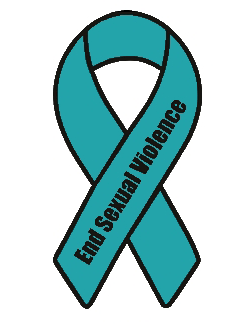Sexual Assault Awareness
This page is dedicated to increasing awareness about sexual assault and providing information to decrease the incidents of sexual assault. If you or someone you know has become a victim a sexual assault, please refer to these resources:
Sterling Police Department (978) 422-7331
National Domestic Violence Hotline (800) 799–SAFE
http://www.thehotline.org
Massachusetts Domestic Violence Hotline (877) 785-2020
National Sexual Assault Hotline (800) 656–HOPE http://www.rainn.org
Pathways for Change (Previously Rape Crisis Center of Central Mass) (800) 870-5905
http://www.rapecrisiscenter.org/
This is an overview. For further, more in depth information on sexual assault, please click here.
Important Facts Regarding Sexual Assault
 Sexual assault is any unwanted sexual contact, where there is a lack of consent and the threat or actual use of force.
Sexual assault is any unwanted sexual contact, where there is a lack of consent and the threat or actual use of force.
- Sexual contact with a person who is unable to give consent (due to being asleep, inebriated, drugged or unconscious) is sexual assault.
- One in three women will be sexually assaulted in her lifetime.
- One in four college women has been the victim of rape or attempted rape during her college years.
- 7-10% of all adult rape victims/survivors are MALES.
- Rapists are motivated by hostility, fear of inadequacy and the NEED TO CONTROL.
- Rapists use sex as a weapon to hurt, humiliate and intimidate their victims.
- Rape is one of the most under-reported crimes. The FBI estimates that only one in ten rapes is reported to the police.
How does an attacker choose their victim?
By perceived vulnerability:
- When someone seems as though they are incapable of protecting themselves when danger is present.
- When it is noticeable that the potential victim is careless regarding their environment.
- When a person is physically or emotionally/mentally impaired.
- When a person is either very young or elderly.
Under the influence of or addicted to drugs/alcohol
- Holidays
- Vacations
- Academic Crunches
- Death
- Divorce
- Loss of job
- New baby
- Development crisis (adolescence, early adulthood)
During times of trauma:
- Abuse
- Violence
- Disaster/Catastrophe
How does an attacker test their victim?
- By violating emotional and physical boundaries and observing their reactions.
- By emotional testing – attempting to get the potential victim to give them their personal information.
- By using obscenities in front of the potential victim without even knowing them.
- By physical testing – getting into the personal space of their potential victim.
What kind of threats does the attacker make toward their potential victim?*
- Verbal threats against safety, security and life.
- Physical threats against safety, security and life.
* At this stage, the perpetrator is in total and full control and the threat is most often the threat of death.
What should you do if you have been sexually assaulted?
- Go to a safe place and tell someone you trust what happened.
- It’s your choice to report the crime, but remember that action against the attacker can prevent others from becoming a victim.
- Don’t shower, bathe, douche, or brush your teeth.*
- Don’t throw away any clothing or objects that might contain evidence.*
- Save every article of clothing worn during the attack without laundering it or altering it.*
- Seek medical attention. Go to the hospital for treatment of injuries, prevention of STD’s or pregnancy, and emotional counseling.
- Request a "rape kit" be completed at the hospital. This will preserve evidence should it be required for criminal prosecution.
- *These items will be collected as evidence by the police or by the sexual assault nurse examiner (SANE) conducting the rape kit.
- Be a good witness. Even though it may be hard, try to remember the details. The sooner you tell, the sooner the attacker can be caught.
- Seek counseling and friends to help you in the aftermath. Remember, it’s not your fault.
- If it happens to someone you know, be there for them and don’t abandon them. Believe their story and offer support. Remind them that it’s not their fault.
Steps you can take to avoid becoming a sexual assault victim:
- Be alert. Try not to appear as if you are daydreaming.
- Walk with confidence. Show that you are in control.
- Be aware of your surroundings. Know where you are and who’s around you.
- Be assertive. Don’t let anyone violate your personal space.
- Trust your instincts. If you feel uneasy, get out.
- Don’t let alcohol and drugs cloud your judgment.
- Avoid walking or jogging alone, especially at night. Stay in well-lit areas.
- Lock your doors and windows, even if you only leave for a few minutes.
- Watch for isolated spots, such as library stacks, laundry rooms, locker rooms, etc.



